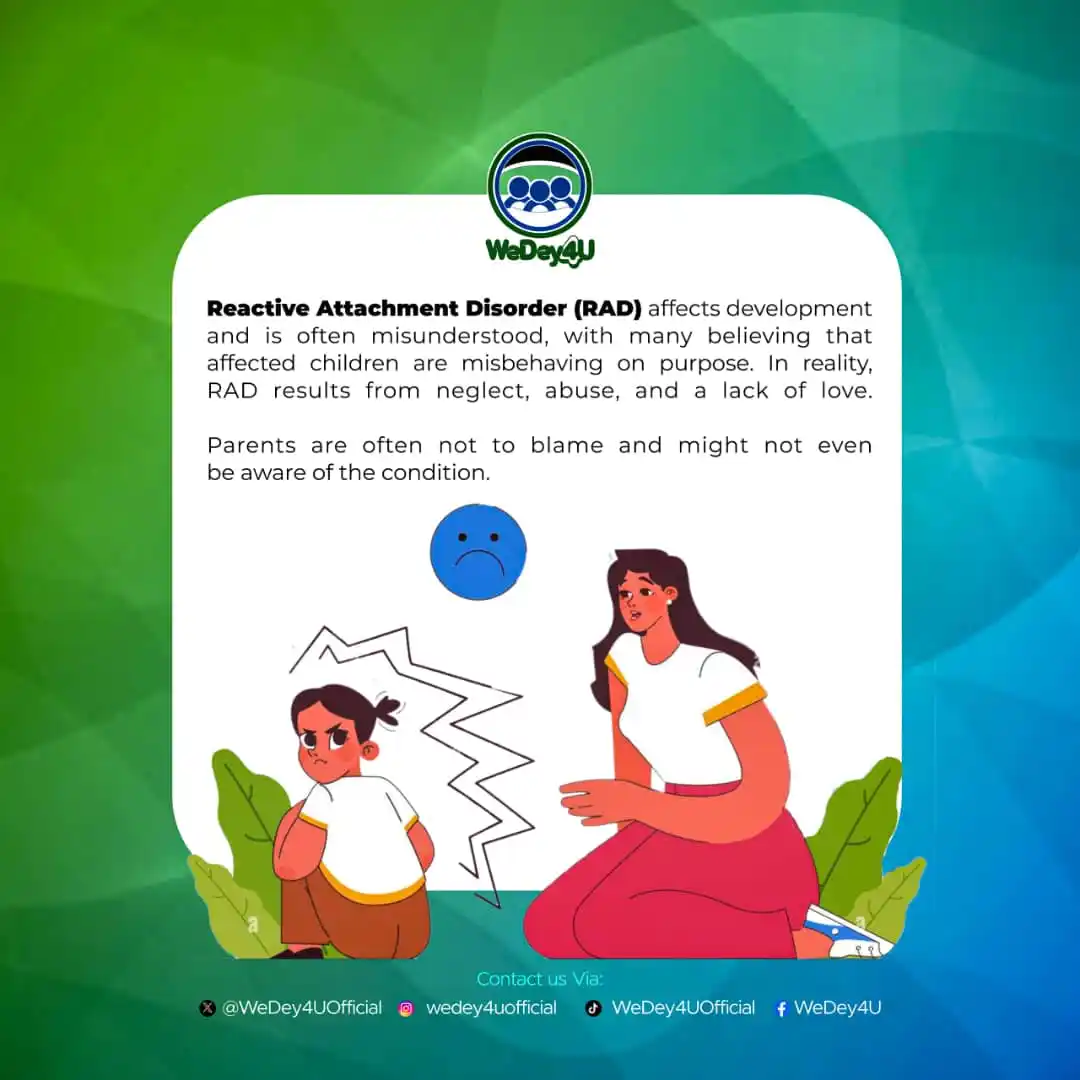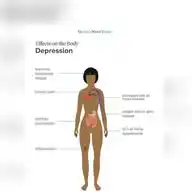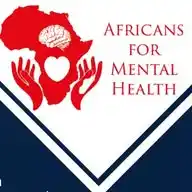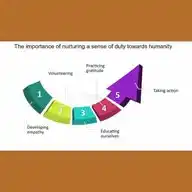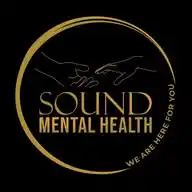
WeDey4U 💚
48 subscribers
About WeDey4U 💚
WeDey4U is an initiative focused on Mental Health advocacy, it is poised to tackle issues associated with depression, anxiety and other mental illness. At any one time, a diverse set of individual, family, community and structural factors may combine to protect or undermine mental health. At WeDey4U, we are committed to protect individual's mental health and champion a recovering journey for the distressed.
Similar Channels
Swipe to see more
Posts

*ANNOUNCEMENT* We are launching *WeDey4U MENTAL HEALTH CLINIC* a weekly 1hr 30min online session on the Basics of Psychological First Aid 🧠 . You’ll learn: 1. How to recognize mental distress 2. How to give emotional support in a crisis 3. How to protect your own well-being, too Every Thursday 8pm - 9:30pm Meeting Point: WeDey4U WhatsApp Community Let’s build a more supportive and resilient community together!! WeDey4U 💚
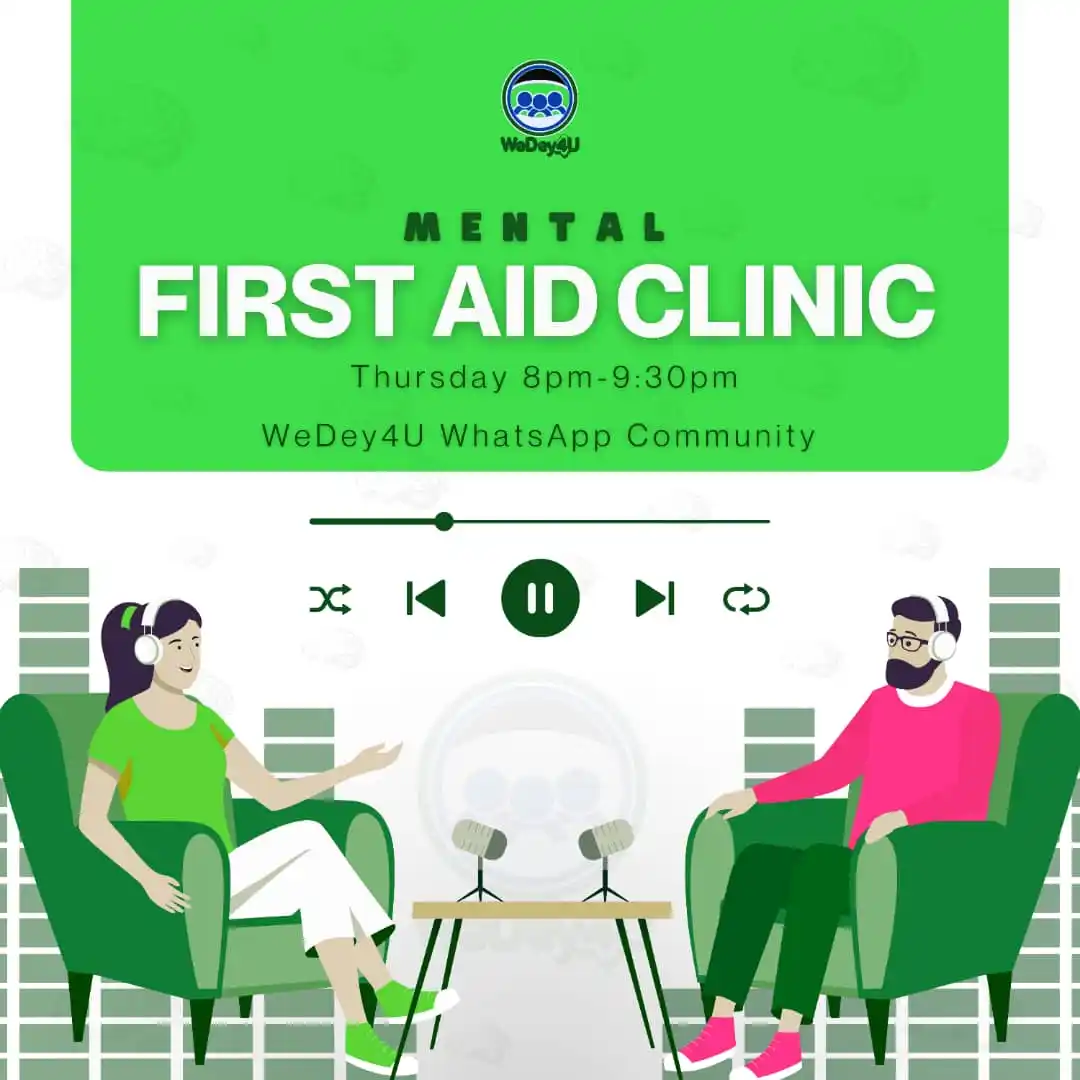

In Nigeria, mental health growth is often misunderstood and stigmatized due to deep rooted cultural beliefs, misinformation, and societal pressures. Some of the common stigmas associated with mental health growth include: 1. Seeking therapy or talking about emotional struggles is often equated with being mentally unstable or spiritually cursed. People are afraid to be labelled as "mad." 2. Many believe mental health issues should only be addressed through spiritual means like prayers, fasting, or deliverance, making therapy or counselling seem unnecessary or even sinful. 3. There is a cultural expectation to endure hardship silently. Admitting emotional struggles is seen as weakness or a lack of resilience. 4. Many people avoid seeking support because they fear being gossiped about or judged by family, friends, or community members. 5. Mental wellness is sometimes viewed as a luxury or a “foreign concept” that doesn’t apply to local realities, especially in rural areas. 6. There is skepticism about psychologists, therapists, or counselors, partly because of low awareness and a lack of accessible, credible services. 7. Men are expected to be stoic and emotionally invulnerable, while women are sometimes told their emotional issues are due to hormones, weakness, or disobedience. Impact of These Stigmas: 1. People suffer in silence. 2. Conditions worsen without early intervention. 3. Mental health growth is hindered, and healing is delayed. Breaking the Stigma: 1. Education and advocacy. 2. Community-based conversations that normalize emotional well being. 3. Inclusive mental health that respects cultural and spiritual values. WeDey4U 💚
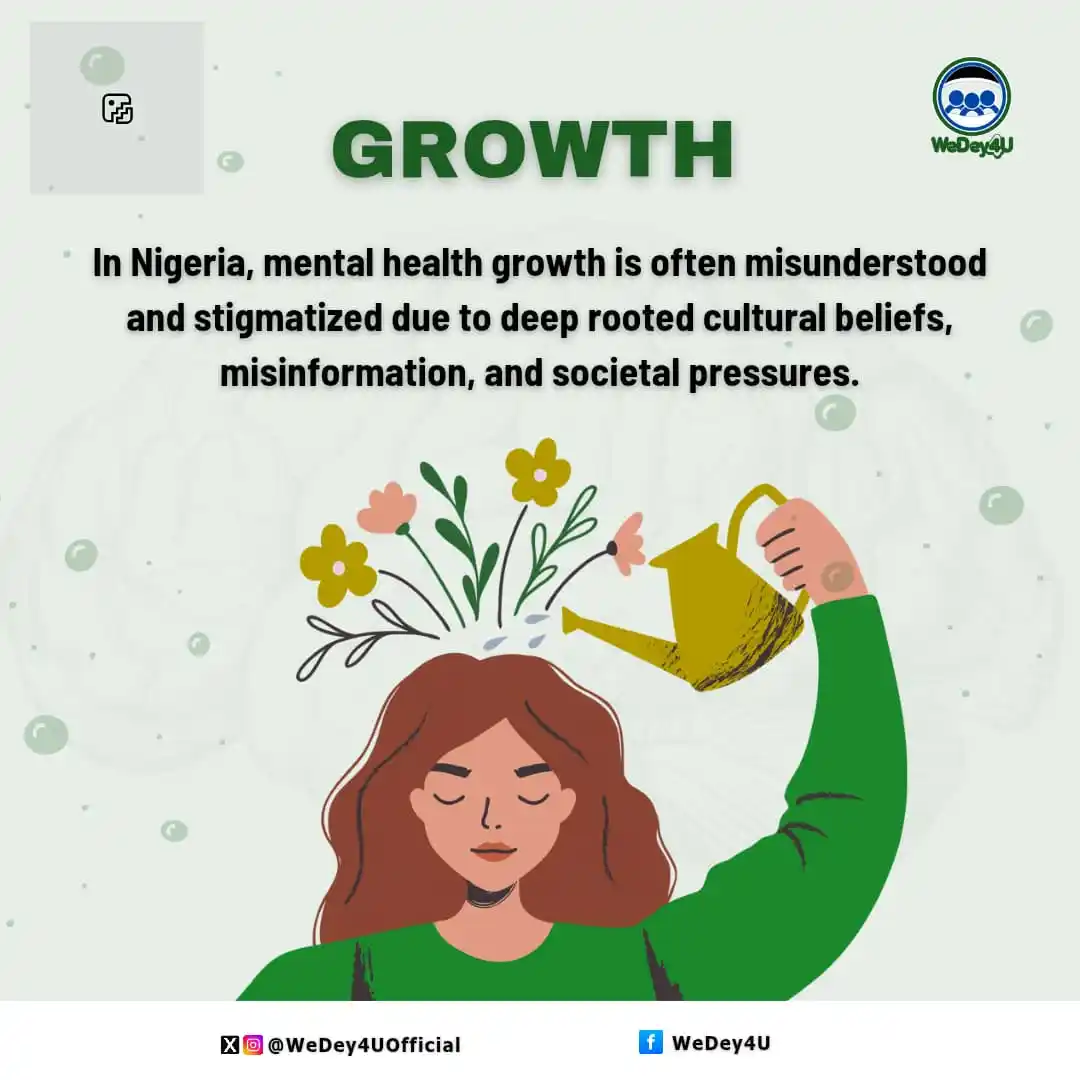

Happy Children's Day to all the amazing kids around the world. Mental health starts early. Let's create a space where children can freely express themselves without judgement, seek help without shame, and grow confidently. Mental health is just as important as physical health. We should take the motive to celebrate their whole self and build communities where every child feels supported, cared for, and loved. WeDey4U 💚 #Happychildrenday #mentalhealth


Growth in mental health lays the foundation for a more balanced, fulfilling, and meaningful life. When you prioritize growth, 1. You experience more inner peace, joy, and stability. 2. You handle stress, anxiety, and sadness more effectively. 3. You communicate more clearly and set healthy boundaries. 4. You become more empathetic and less reactive. 5. You're better equipped to face life’s challenges without being overwhelmed. 6. You see setbacks as learning opportunities instead of permanent defeats. 7. You understand your thoughts and feelings more clearly. 8. You make choices based on clarity rather than fear or impulse. 9. You manage your time and energy more wisely. 10. You find meaning in life, even in pain or struggle. These and more are the benefits of growth. Remember that mental wellbeing is not a destination but a process. WeDey4U 💚
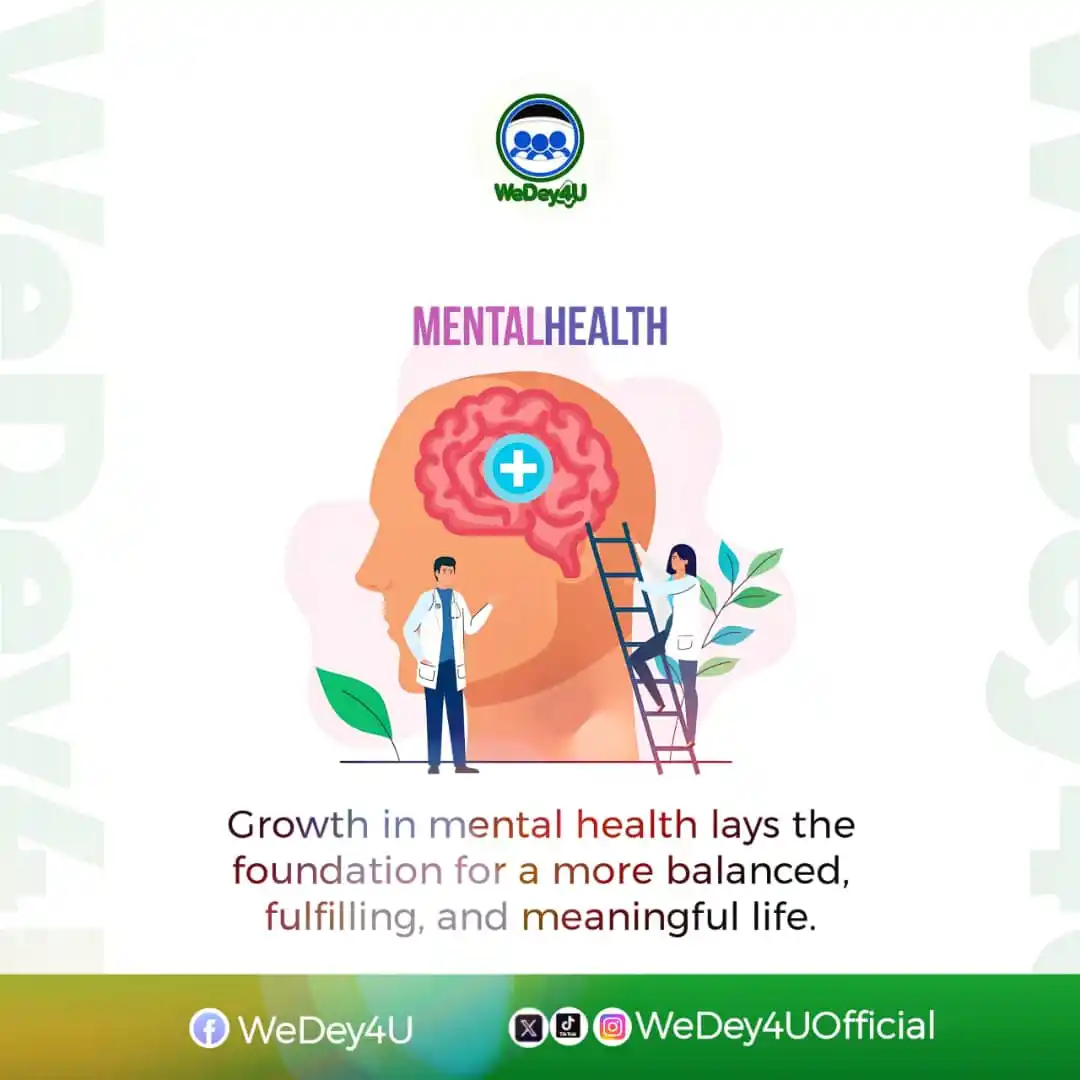

Growth in mental health refers to the ongoing process of developing emotional resilience, self-awareness, healthy coping strategies, and positive relationships. It is not just about healing from trauma or managing mental illness. It is about becoming more grounded, balanced, and capable of navigating life’s challenges. Here are key aspects of mental health growth: 1. Self-Awareness: Understanding your thoughts, emotions, and behaviors and how they influence each other. 2. Emotional Regulation: Learning to manage difficult emotions like anger, anxiety, or sadness in healthy ways. 3. Healthy Relationships: Building boundaries, practising empathy, and improving communication. 4. Resilience: Bouncing back from setbacks, adversity, or trauma with increased strength or insight. 5. Mindset Shifts: Moving from self-criticism to self-compassion and from fixed beliefs to growth-oriented thinking. 6. Purpose and Meaning: Discovering values, goals, or activities that give life deeper meaning and satisfaction. 7. Coping Skills: Using tools like mindfulness, therapy, journaling, or exercise to manage stress and maintain balance. Mental health growth is often nonlinear. It includes progress, setbacks, and learning along the way. It’s deeply personal and can look different for everyone. WeDey4U 💚
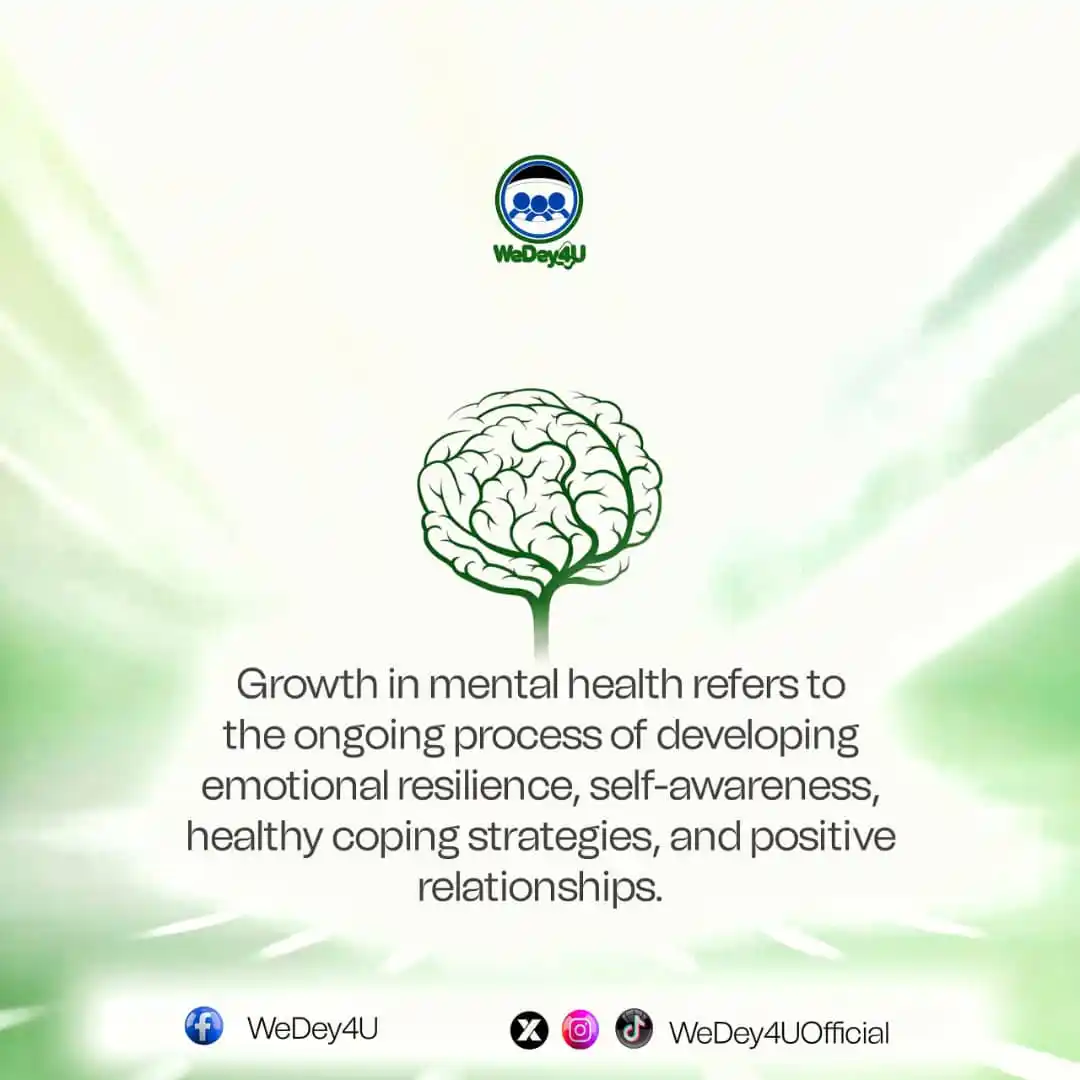

Healing is often misunderstood. It’s not weakness, attention seeking, or something you 'get over' quickly. It is courage, growth, and a journey worth taking no matter how long it takes. Addressing and debunking stigmas around healing requires awareness, education, compassion, and real conversations. We can achieve these by: 1. Educating the public 2. Sharing real stories 3. Speaking out against stereotypes 4. Creating safe spaces 5. Involving faith & culture respectfully 6. Using inclusive language 7. Encouraging professional help WeDey4U 💚
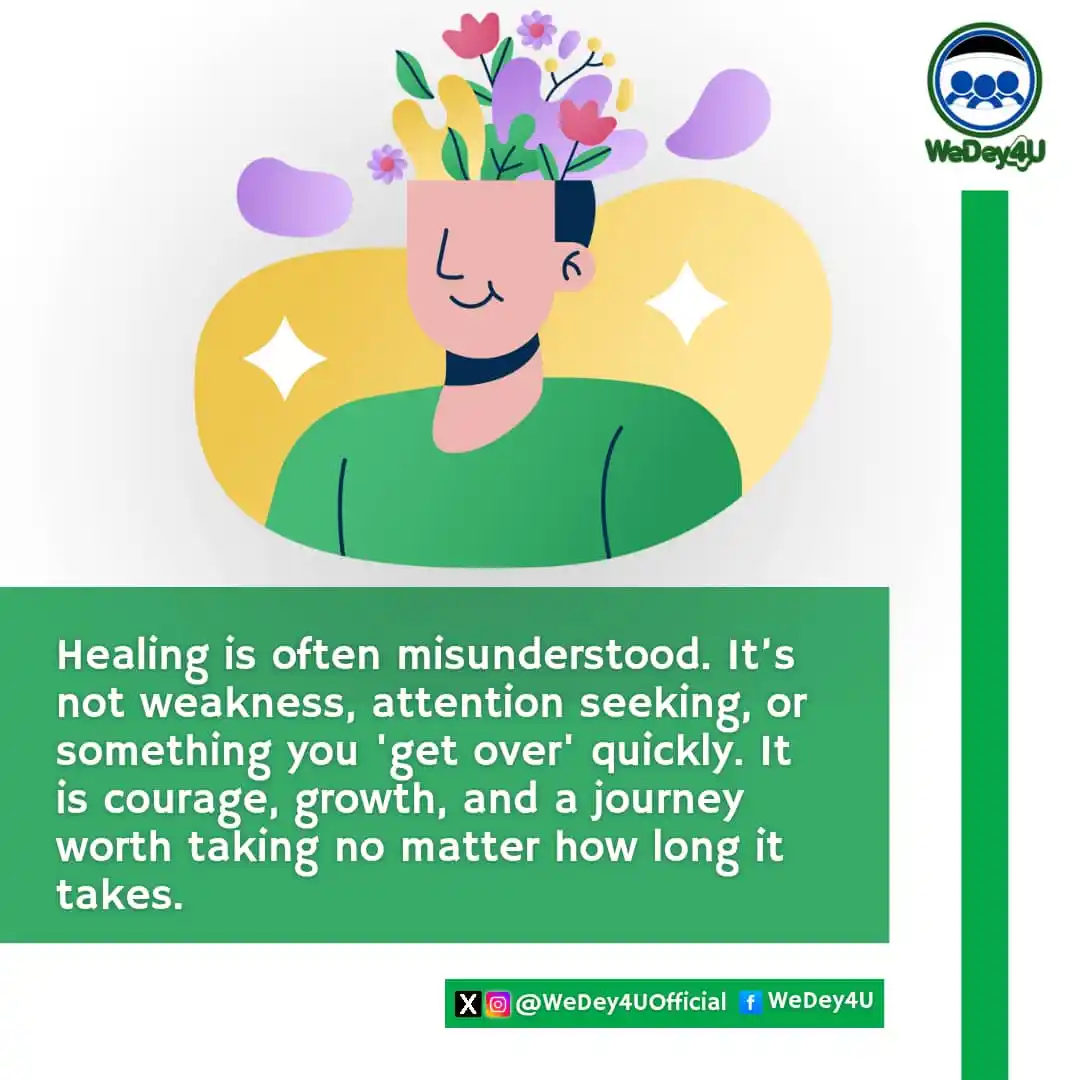

Agoraphobia is the fear of being in situations where escaping might be difficult or where help might not be available if something goes wrong. It is more than just a fear of going outside and It often develops after panic attacks or extreme anxiety in certain places, leading the person to avoid those places. For someone with agoraphobia, even thinking about leaving home can cause intense fear, dizziness, sweating, or a racing heart. They may feel like they’re losing control, about to faint, or even dying. This leads them to avoid places that trigger those feelings, which can make their world feel smaller and smaller. Agoraphobia affects both the mind and body, leading to a combination of emotional, behavioral, and physical symptoms. These symptoms include being completely unable to leave home, having panic attacks just thinking about going outside, struggle with relationships or work due to isolation and experience depression or even suicidal thoughts. People with agoraphobia often avoid public places, open spaces, crowded areas, or situations like using public transportation, standing in lines, or being in unfamiliar environments. WeDey4U 💚
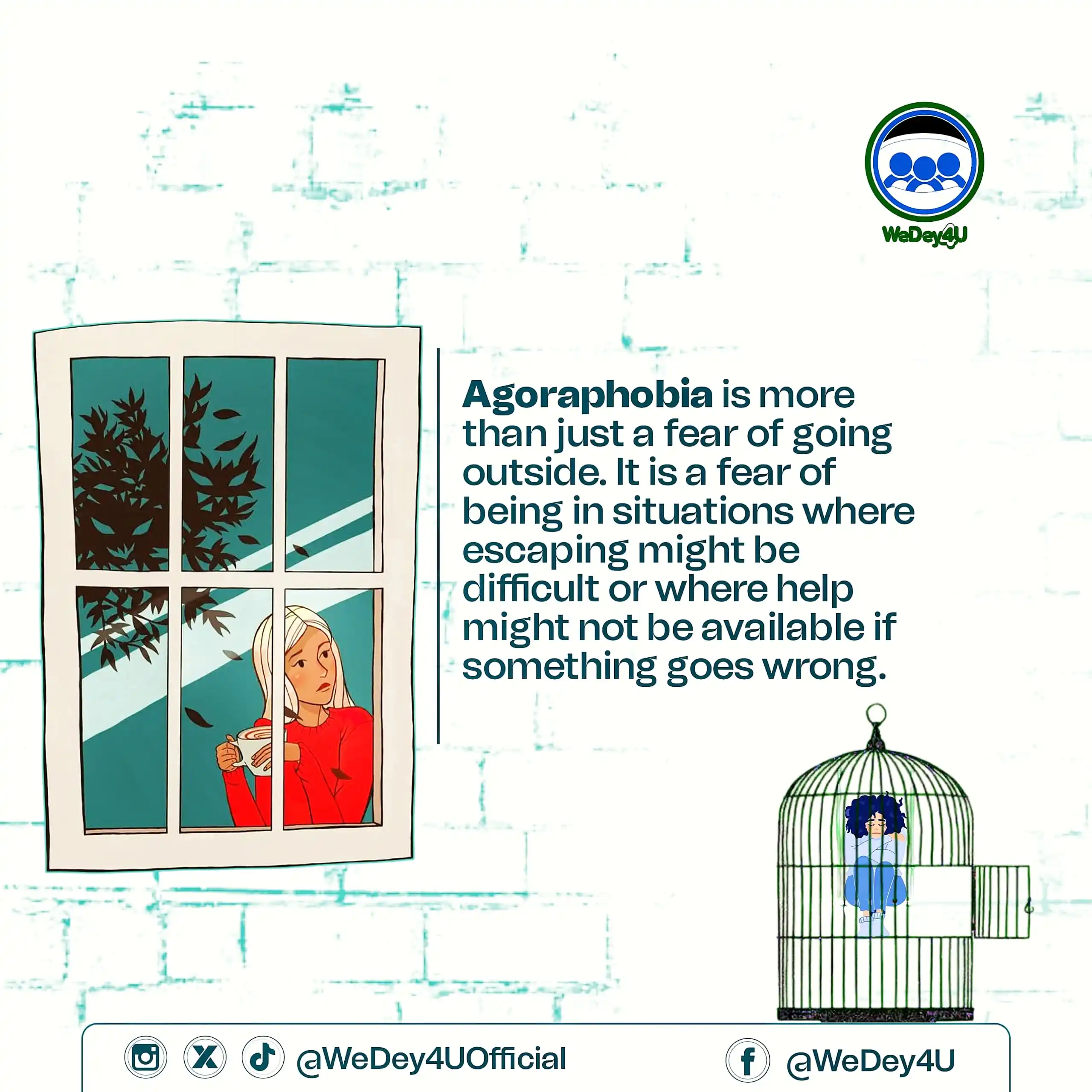

RAD develops when a child does not form a healthy emotional bond with caregivers due to neglect, abuse, or a lack of consistent care during early childhood. *Causes of RAD* Some key causes include: 1. *Severe Neglect:* Persistent lack of emotional support, comfort, and attention from primary caregivers. 2. *Frequent Changes in Caregivers:* Moving between foster homes, orphanages, or caregivers, preventing the child from forming secure attachments. 3. *Institutionalization:* Being raised in an orphanage or similar setting with little one-on-one attention. 4. *Parental Mental Illness or Substance Abuse:* Caregivers with untreated mental health issues or addictions may be unable to provide consistent care. 5. *Prolonged Hospitalization:* Babies or young children who spend extended time in hospitals without stable caregiver interaction may struggle with attachment. 6. *Abuse or Trauma:* Physical, emotional, or sexual abuse in early childhood can disrupt attachment formation. *Risk Factors of RAD* 1. Early Childhood Neglect or Abuse 2. Extreme Poverty or Unstable Living Conditions 3. Adoption or Foster Care Placement 4. Parental Absence
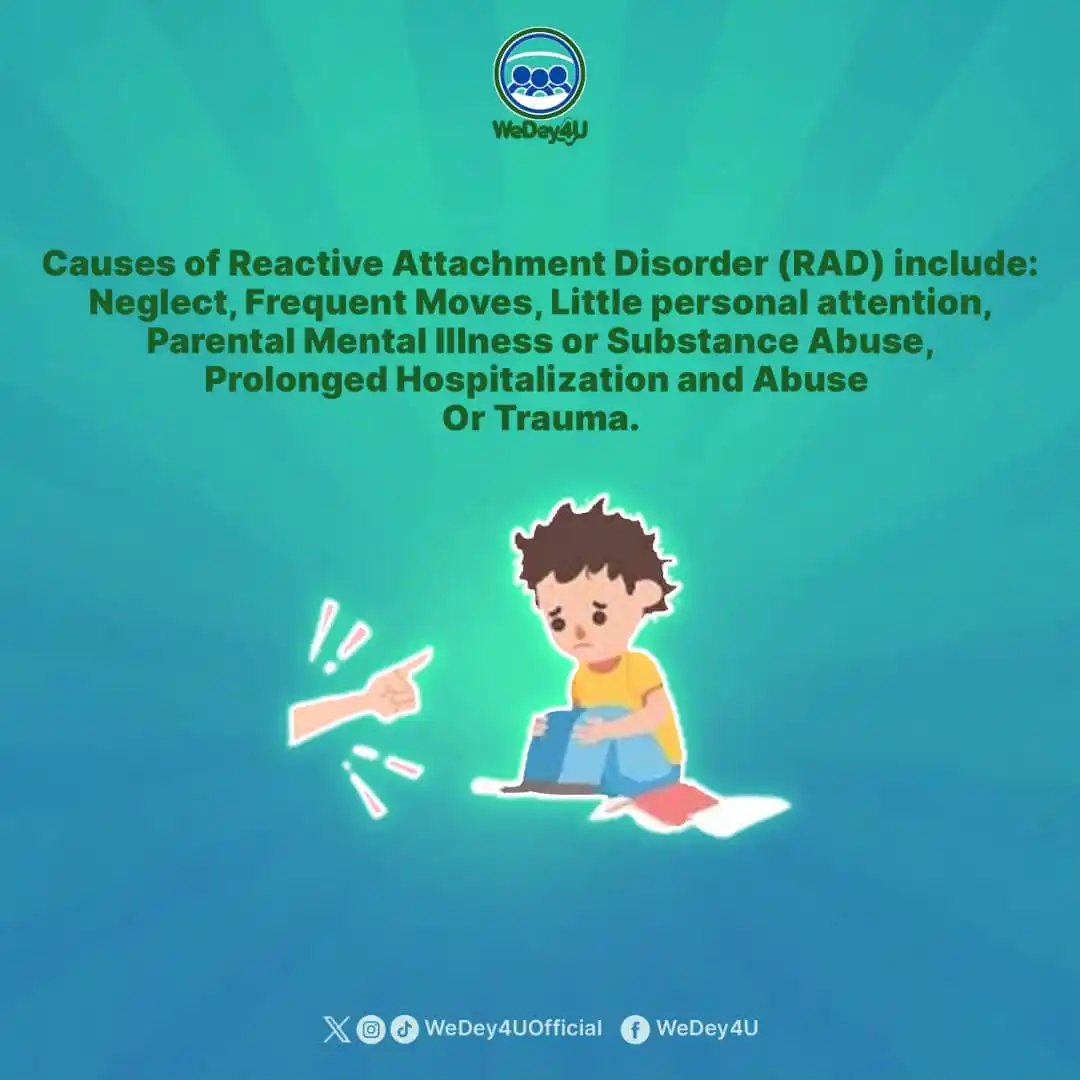

Agoraphobia is a type of anxiety disorder characterized by a fear of being in public places or situations where escape might be difficult. Here are some common causes and risk factors of agoraphobia: Causes of Agoraphobia 1. *Genetics*: Individuals with a family history of anxiety disorders are more likely to develop agoraphobia. 2. *Brain Chemistry*: Imbalances in the brain can contribute to agoraphobia. 3. *Traumatic Events*: Experiencing a traumatic event, such as a panic attack or a physical assault, can trigger agoraphobia. 4. *Learned Behavior*: Agoraphobia can be learned through observation, experience, or social interactions. 5. *Stress*: High levels of stress can contribute to the development of agoraphobia. Risk Factors of Agoraphobia 1. Family History 2. Age 3. Female Sex 4. Personality Traits 5. Other Mental Health Conditions* 6. Substance Abuse 7. Major Life Changes Other Factors That May Contribute to Agoraphobia 1. Social and Cultural Factors 2. Environmental Factors 3. Medical Conditions
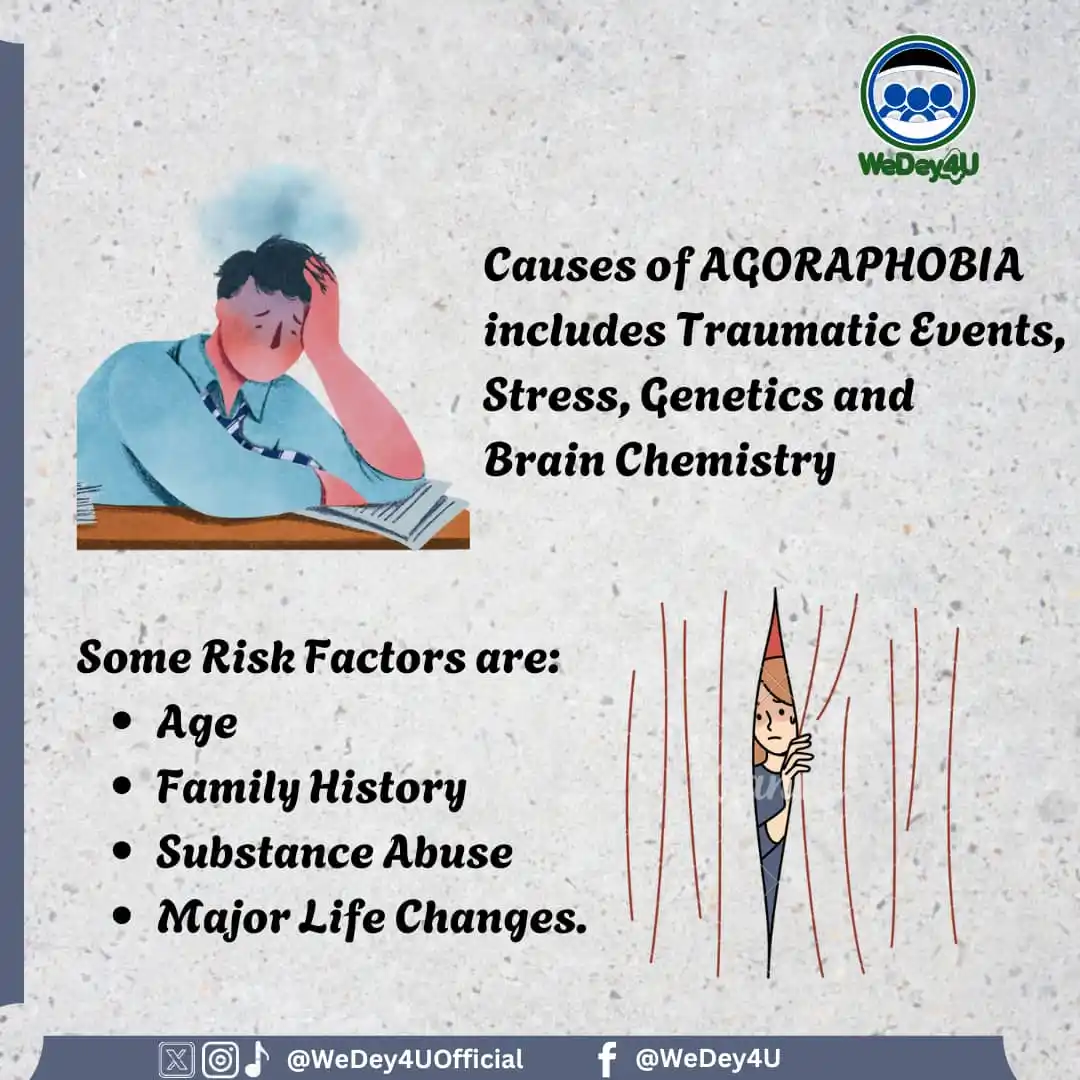

Reactive Attachment Disorder is not as common as other childhood disorders, it is strongly linked to children who have a history of trauma and can have a huge effect on the child's development. As a result of this, it is surrounded by many false beliefs and stigma. The fact that RAD stems up a perception that children diagnosed with it are unlovable and badly behaved which is as a result of deliberate manipulation, rather than a consequence of severe early childhood neglect or abuse leading to difficulty forming healthy attachments and significant social interaction issues. Which can result in parents feeling judged or blamed for their child's condition, furthering the stigma. Truthfully, this condition sprouts up due to lack of love or attention from loved ones,but its also caused by sexual abuse, physical abuse,domestic violence and neglect. In most cases, the parents are not the primary cause and are even ignorant of the child's conditions. Some Key Aspects of RAD are: 1. They are mostly manipulative, spoiled and ill-mannered 2. They are mostly social isolated which could birth the perception that they are either problematic or different 3. Parental Blame is mostly perceived especially in strong cultural communities and societies. This could cause misunderstanding in the family and would worsen the child's condition if care isn't taken. 4. Many people are not familiar with RAD, leading to misconceptions about the disorder and its causes, perpetuating stigma. 5. The stigma surrounding RAD can sometimes prevent families from seeking necessary therapeutic interventions due to fear of judgment or disbelief from healthcare providers. With appropriate therapy and support, children with RAD can learn healthy coping mechanisms and develop secure attachments. Furthermore, early diagnosis can improve outcomes for kids with RAD. Proper education on these conditions can reduce stigma and preconceptions as well.
